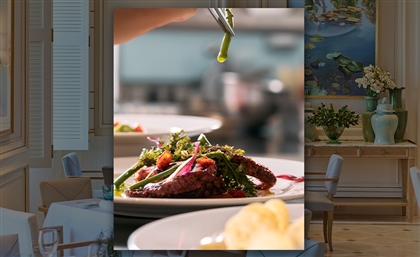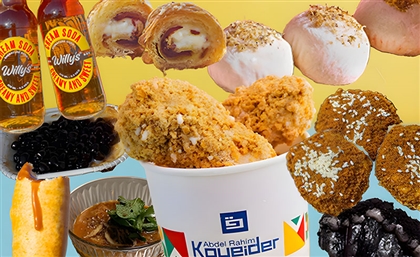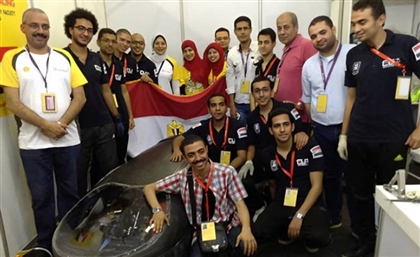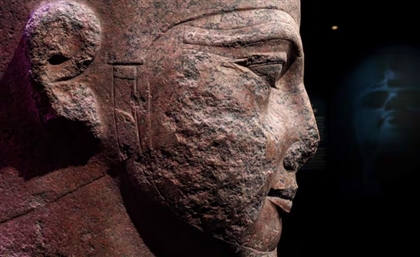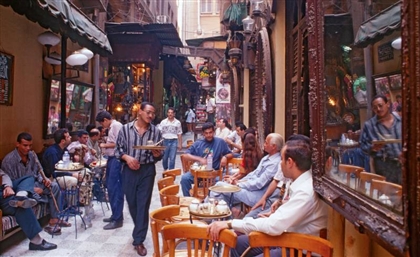12 Foods Used To Describe Life in Egypt
Sometimes when words fail us, we turn to food to express ourselves...
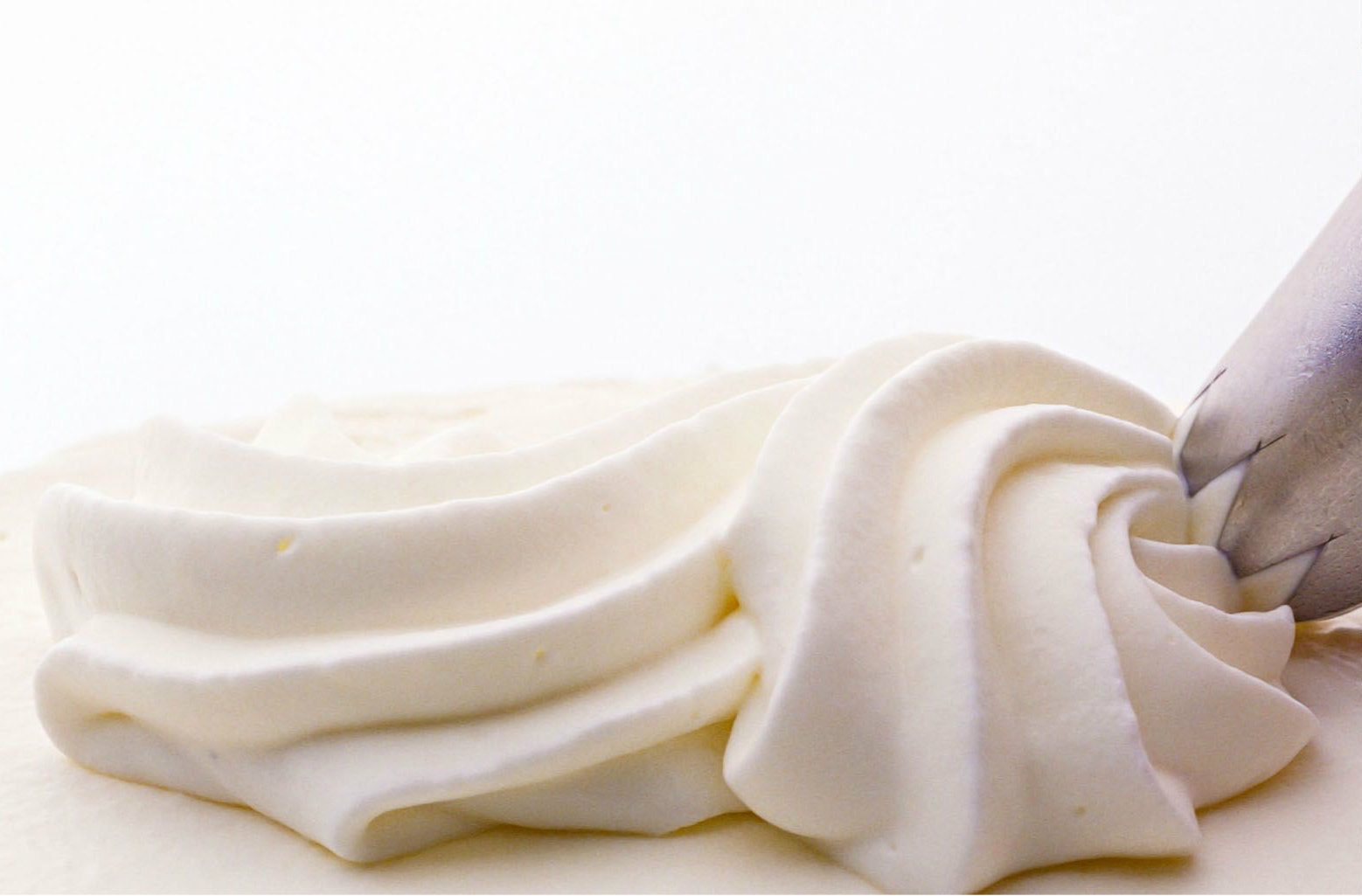
Food glorious food! We Egyptians, we love our food. Who doesn’t?! Food is what you turn to doing both times of need, struggle and hardship and in times of joy and celebration. Food gets you, is there for you, and understands you; for when the going gets tough who you gonna call? Delivery.
So seeing that our culture appreciates such a blessing we decided to incorporate it in our everyday life and when words fail us in expressing ourselves, food items naturally fix the problem.
 /center>
/center>
Kofta means meatball. There are no strict rules on whether this term is used to address a person or a situation. The term is used to say that something has occurred by sheer lucky coincidence. If used to describe a person, it means they're a phoney or a fake.
Johnny: Gosh! Did you know that he travelled the whole wide world?!
Abbas: No, no, no.. He is a meatball.

For some kosa is a vegetable meaning zucchini, for Egyptians it mainly refers to favouritism and used mostly when someone uses their connections to accomplish something like get a grade, get out of trouble, or get a job.
Johnny: Golly! Joe got into Harvard because of his good grades!
Abbas: No, no, no. It is zucchini. His uncle owns it.

Eshta is cream and is used on many Egyptian desserts such as Egyptian pancakes (feteer). This term can be used as a cat call or in agreement, a substitute of sorts for "Yes" or "Agreed".
Johnny: Would you like to come with me to the movies?
Abbas: Cream.
Usually for breakfast you can get halawa sandwiches mainly made out of sugar and tehina mixed with nuts. But it's also an expression used to describe how easy something is even if it looks impossible. So it's as easy as a knife cutting through a piece of sweet and delicious Halawa.
Johnny: Abbas are you sure I can find my way to the pyramids?
Abbas: Of course! It is knife in sweetness.

Aubergine is used to make the famous Egyptian dish Mussaka’a and the closest thing to describe the meaning of that expression in English is "whatever''. So when you're narrating a story and you don't wanna go into a lot of useless details, you can just replace it with ay betengan.
Johnny: So what happened at the party?
Abbas: Any aubergine.
You're living in watermelon water! This is an expression that Egyptians use to describe someone who is totally disconnected from the surrounding world or has no idea what's going on around him; a day dreamer.
Johnny: So do you own your own camel?
Abbas: Are you an egg or just living in watermelon water?

Sweetness with ginger is not an actual food mixture, but the expression is used by many with the meaning of "cool" to describe a situation, something, or even someone and also to agree with someone’s suggestion, rather similar to eshta.
Johnny: I have given the bouncer Jasmine tea so we’re hooked up for the party, would you like to go tonight?
Abbas: Sweetness with ginger

It originally means fish eggs or roe and is a popular food to eat during easter but also mainly used to describe if someone has gained weight.
Johnny: I ate so much fool this morning.
Abbas: Be careful not to get fish egged.

Honey - this superfood is not just used for sweets and remedies but also to describe someone as being funny or cute.
Johnny: I am having so much fun in Egypt.
Abbas: Oh Johnny, I swear to God you are honey.
Jasmine Tea / El Shay Bel Yasmine / الشاي بالياسمين

Jasmine tea not just a tea to sip at the end of a hard day at work but also is used to describe the act of giving a bribe. It first came out in actor Adel Emam's movie, Morgan Ahmed Morgan where he took up the role of a very rich businessman who used the expression to offer bribes to government officials, asking them if they’d like some jasmine tea then showing them the money. The expression went viral after the movie.
Johnny: The bouncer wouldn't let me in to the party yesterday night!
Abbas: Why didn’t you offer him some jasmine tea?
Egg / Beid / بيض

This might be the most famous one on the list; the legendary and historical "egg'' term. And as you all know it's used to describe someone or some act that is excruciatingly annoying "el wad deh beid" (that guy is an egg). It's also used to describe the feeling itself of being uncomfortable or annoyed. If the situation is super annoying or the person then the term will develop to omlette.
Johnny: Why can’t I come with you to see your friends?
Abbas: Because you’re being an egg.
Pickled / Khallelt / مخلل، خللت

Pickles are a usual side dish with awesome foul and tameya sandwiches and also used to express the idea of waiting for someone or something for too long, to the point that you got pickled from the long wait.
Johnny: Why are you so late?
Abbas: I got pickled in traffic.
- Previous Article Creative Industry: Bringing Together Egypt's Innovators
- Next Article 10 Strictly Egyptian Moustaches That Will Inspire You This Movember




